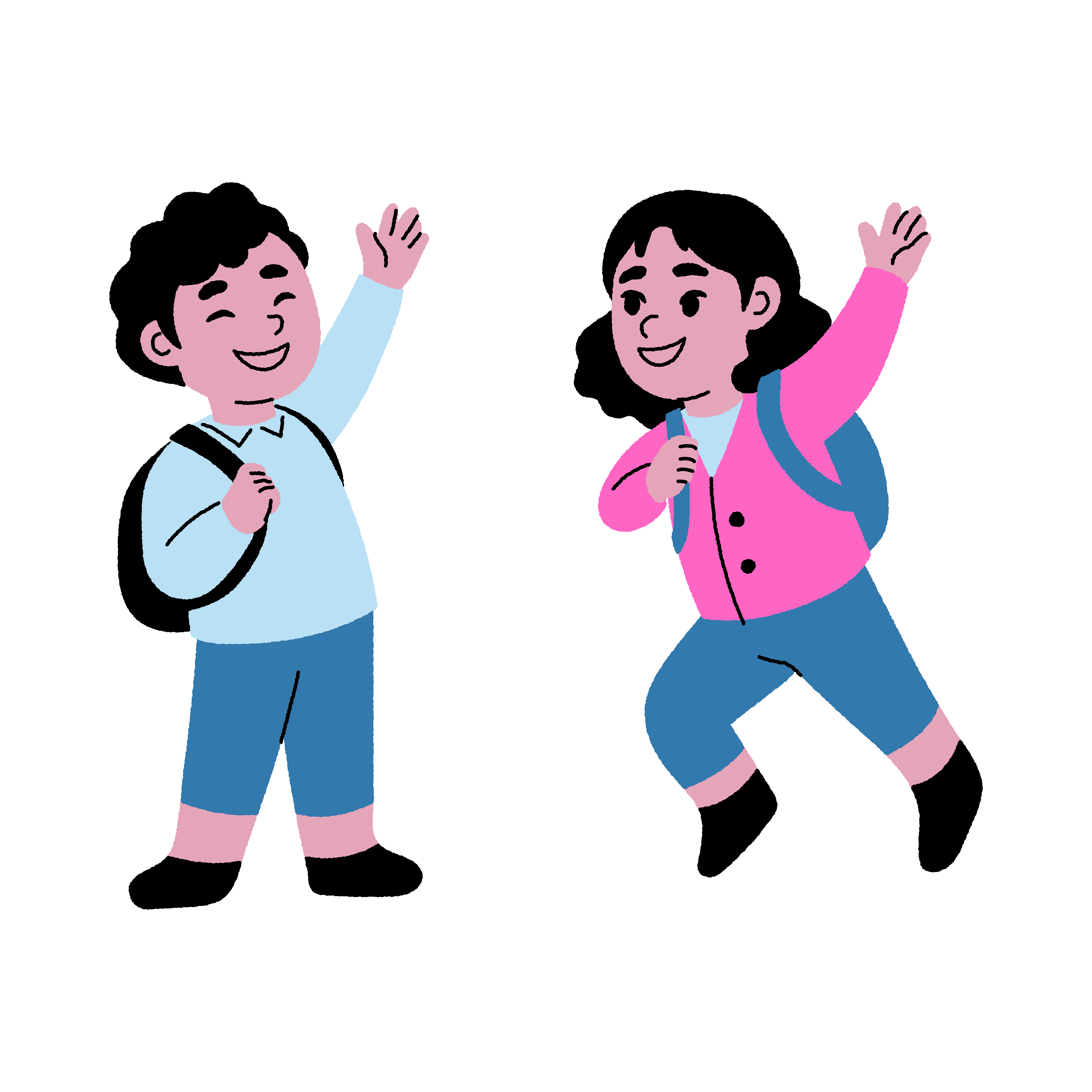Join me...
Acing your College Interview
Hi,
I’m Alix and it’s my mission to get as many as possible of the next generation working in jobs that meet their passion and purpose, making them happy and fulfilled adults. Providing support and hand holding where they may not have any.
Join me in making sure you’re one of them as today we delve into strategies that can help you excel at your college interview, increasing your chances of securing a spot at your dream institution and show you what to look out for while you’re there to confirm you’re in the right place for you.
So, grab a snack and let’s get considering.

The college…
As you’re reading this article you’ve decided that going to college is the right path for you and have (hopefully) read my article ‘Choosing the right college for you’.
Note: it may be that more than one college excites your interest and, if so, apply to all. This will keep your options open and you only have to make a final decision once you’ve received offers and got your exam results. Having said this, if you aren’t keen on one or other college, don’t hold up a place for someone else – ruin their dream.

After completing the application process, itself a pivotal moment in your academic journey, you’ll have listed your grades, predicted grades, test scores and the extracurricular activities you did, all playing a significant role in a college’s decision process.
Depending on what they are, the extracurricular activities can demonstrate that you have commitment and/or are a team player, both something colleges are likely to be looking for.
And the next stage is the interview.
The college interview itself offers you a unique opportunity to stand out from all the other potential students’ applications they have in front of them and allows you to make a lasting impression on the admissions committee.

But mastering the art of acing a college interview requires preparation, confidence and effective communication skills.
And, of course, the interview is a two-way process.
It’s your opportunity to see the college, check how up to date their facilities are, meet some of its staff and get a general understanding of its ambiance, ie whether the students seem happy. Remember that the online pictures and brochures will not show the total picture, they’re not going to put unhappy students or unpainted labs in them – go and see for yourself.

But let’s start with you…
Appearance…
Personal hygiene is, naturally, important. Make sure your hair is washed, nails clean, your clothes and shoes/trainers presentable.
Avoid strong perfumes or body sprays – they’ve been known to induce headaches in interviewers – not the lasting impression we want to leave…
Think about what you’re going to wear in advance.
Check out the prospectus. The pictures will give you an indication of acceptable clothes, ie they wouldn’t have put pictures of students in that weren’t wearing them as the prospectus itself is there to tempt you to attend their college!
If you’re unsure, aim for smart casual.

Make sure your clothes are clean and ready to slip on, you don’t want the stress of having to sort out a top when the bus you’re catching is on its way.
Timing…
It goes without saying that you must not be late. If you cannot make it to one interview on time, how can the college expect you to arrive for all your classes in a timely manner?
So, check out the journey – be early, it can show contempt to be late, implying the interviewer’s time isn’t important.

Additionally, it’ll give you time to look round, being late can be stressful and maybe leaving you having to run to the interview, possibly making you red-faced and sweaty, neither being the impression you want to give.
Body language…
Non-verbal cues speak volumes. Pay attention to your body language as it can influence the overall impression you leave on the interviewer(s).
Offer a firm handshake, maintain eye contact, and sit up straight.

These signals convey confidence and professionalism.
Etiquette…
Even if you know the interviewer’s first name, always address them as Mr or Ms, unless or until, they ask you to call them by their first name. If they do.
College is different to school, more relaxed and easy going, but it’s for them to guide you as to how formal they want the interview to be.
And smile.
A smile is a great equaliser, it transcends language barriers, age and gender but make sure it’s genuine and reaches your eyes.face

Two-way interview…
Remember the two-way idea.
As you walk through the college look around. Is it clean? Are the students happy? Do they seem to mix freely?
You want to fit in to avoid any stress generated by feeling the ‘odd one out’ while you’re studying so check out what the students are wearing today.
Copy it if you decide to go there so you fit in immediately - you can always introduce your very own quirky (I mean personal) fashion sense later.

College is a serious business and minimising anything that could be stressful from the beginning will help you settle in.
If you’re taking science, ask to see the science lab. Is the equipment up to date?
Do they have magazines lying around – are they recent copies?
Are the interviewers relaxed? Note their body language.
What type of language are they using – conversational? Do they have an accent and, if so, can you understand them regardless?

Note 1: when my daughter was studying for her GCSEs her science teacher had such a strong accent it was next to impossible to follow the lesson. As my daughter was at an online school, she was able to record her lessons and, having listened in on a couple of sessions, I had the same issue. It could be that it would have been easier in a classroom setting, it could be that if you had a strong interest in the subject it would have made it easier, I don’t know, but the bottom line was that, fortunately, my daughter didn’t need science for her career and it was too late in the day to fix it, so I told her not to waste time studying for the subject and concentrate on the others for her exams and, although I wouldn’t recommend that for anyone, it was the sensible decision at the time and I have no regrets (and hopefully she doesn’t either)!
Note 2: another example I want to quote, to balance the above, is that I was in a café working on articles and two men were sitting fairly close to me. One of them had an accent that I simply would have bottled up and taken home with me if I could, it was so very relaxing and memorable, and I could have listened to him reciting the telephone directory all day every day.

An accent is not a bad or good thing, but if you’re studying you must be able to follow a teacher to learn what you need to.
Research, research, research…
Before stepping into the interview room, arm yourself with thorough knowledge about the college. Understand its history, mission, academic programmes, and extracurricular opportunities.
This demonstrates a genuine interest and should confirm that you’re in the right place.
Moreover, being informed allows you to think about anything original that that particular college offers and ask insightful questions about it during the interview, which can set you apart as an engaged applicant.

Be genuine, ie ‘you’…
While it's natural to want to impress, remember that being genuine trumps perfection hands down.
Avoid giving answers you think the interviewer wants to hear; instead, provide natural, honest responses that reflect your values and personality.
Admissions committees are looking for students who will both fit and thrive on their campuses and their decision requires you being yourself so that they see the real you.
When they accept you, they’ll already have considered your fit with other students, which, in itself, will give you a confidence booster for your first day.

Craft your narrative…
The interview is a chance to tell your story, the one behind what's written on your application.
Reflect on your academic path, ie how you read my article ‘Exploring Options After GCSEs’ to re-confirm the subjects you wish to study at their college which will further your personal journey. (Just a small plug for me!)
Consider experiences that have shaped you into the individual you are today.
Identify challenges you've faced, and overcome, and how they changed you.

Articulating your narrative will not only allow the interviewer to understand you more but also demonstrates your self-awareness while, again, making you more memorable.
Master the art of storytelling…
Human beings are wired to connect through stories. Think of compelling anecdotes that demonstrate your character, resilience and adaptability.
If you can make the story an event where you worked with others to overcome a challenge all the better as you’ll show you can work in a team.
Use subject specific terms and words where they fit in with subjects you wish to study to demonstrate your understanding of them.
Weave these stories into your responses, where you can naturally, to illustrate your points effectively.

A well-told story can leave a lasting impression and provide the interviewer with a deeper understanding of who you are - let them know your personality.
Enthusiasm…
Passion is contagious.
Let your genuine excitement about what the college can offer you to meet your passion and purpose shine through.
What attracts you about this particular college?
Speak about the programmes, professors, or opportunities that genuinely draw you.

Discuss your long-term plans, ie whether you plan to go on to university, become an intern, take an apprenticeship or plan to be an entrepreneur.
Enthusiasm not only makes you a memorable candidate but also indicates to the admissions committee that you are likely to contribute positively to the campus community.
Highlight your strengths…
Don't be shy about discussing your strengths and accomplishments and impactful experiences.

However, remember to do so with humility and focus on how these accomplishments have contributed to your personal growth and your potential to contribute to the college environment. For instance, it’s okay of course to say you led a team in a school challenge but use the word ‘we’ and not ‘I’ where possible.
Prepare thoughtful questions…
Towards the end of the interview, you'll likely have an opportunity to ask questions.

Use this time wisely to demonstrate your interest and curiosity.
Ask questions that go beyond surface-level information, such as inquiries about specific research opportunities, use course-specific words.
Are they a feeder college linked to any universities?
Is there funding allocated to keep, for instance, the science laboratory, if you are going to be studying science, up to date?

What were last year’s results? Did the students then get into the university of their choice?
What is the staff turnover? This will let you consider whether you’re likely to keep the same tutor(s) throughout your college study.
What are the likely class sizes for the topics you’re applying for?
What’s the college's track record in helping students secure internships and job placements.
Does the college have partnerships with reputable companies and organisations?
Have any of your soon-to-be teachers had articles published on their subject?

Having already checked extra-curricular activities, you could ask whether these are generally heavily over-subscribed. This is to show you’re a team player and want to interact with other students, be a team player.
Thoughtful questions not only showcase your engagement but also give you insights into whether the college aligns with your aspirations (again, the two-way thing).
Practice, practice, practice…
Just like any skill, interviewing benefits from practice.
You could conduct mock interviews with family members, or mentors.

Practice answering common interview questions while maintaining a conversational tone and keeping your body language positive.
Practice will help you refine your responses, manage any nerves, and make you comfortable with the interview format, making it less scary on the day.
And seek constructive feedback to improve your communication style and presentation.
Follow up…
After the interview, take the time to send a personalised thank-you note to your interviewer. Express your appreciation for their time and reiterate your interest in the college.
Follow-up can demonstrate your professionalism and consideration, leaving a positive impression as your application is considered.

Conclusion…
In conclusion, the college interview is an invaluable opportunity to present yourself beyond the confines of your written application.
Remember that the interview is not only a chance for the admissions committee to learn more about you but also for you to confirm that the college is right for you.
By conducting thorough research, crafting your narrative, practicing diligently, demonstrating enthusiasm, highlighting strengths, mastering storytelling, asking thoughtful questions, focusing on body language, being you and following up, you can position yourself as a standout candidate.
Approach the interview with confidence and let your genuine self-shine.
With the right preparation and mindset, you can navigate the college interview successfully and inch closer to your dreams.

I’d love to hear how you’re getting on and, where possible, if we can help more.
Lastly, I wanted to both wish you luck and say that I know you can do it.
Success is within your grasp - good luck!
